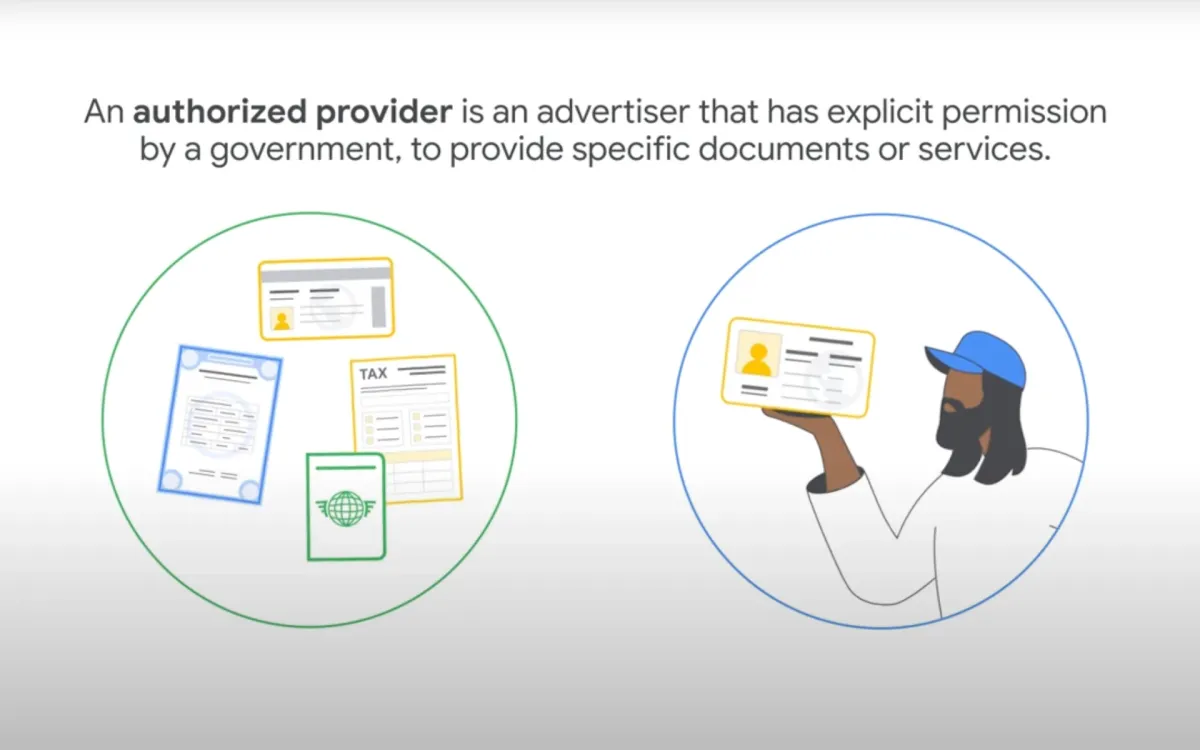
Google Ads last week released a comprehensive video guide detailing its policy on advertising government documents and services. This instructional video, published on the official Google Ads YouTube channel, arrives 4 days ago to clarify the certification process and requirements for advertisers in this sensitive sector.
The three-minute video addresses who can advertise government documents and services, how to become certified, and what types of documents and services fall under this policy. It represents Google's ongoing efforts to communicate complex policy changes effectively to its diverse advertiser base.
According to the video, Google restricts ads related to government documents and services to protect users from fraud, ensure the dissemination of accurate information, and safeguard the integrity of government websites. Only certified governments and authorized providers can run ads that promote the direct acquisition of specific government documents and services.
The video defines government documents and services as official documents issued by the government and official services rendered by the government. An authorized provider, as explained in the guide, is an advertiser with explicit permission from a government to provide specific documents or services.
For those qualifying as authorized providers, Google outlines a two-step certification process. The first step involves applying for certification by selecting the appropriate options. The second step requires completion of Google's Advertiser Identity Verification program. Advertisers are instructed to check their email for instructions to initiate this process and provide all necessary information for successful verification.
Once the application is submitted, Google estimates a processing time of 5 to 7 business days for the verification to update in the advertiser's account. Upon approval, a certificate is applied to the Google Ads account, enabling the advertiser to run their ads.
The video guide provides examples of documents and services covered by this policy, including regional identification numbers, birth or death certificates, name or address changes, business identifiers, criminal background checks, health and welfare assistance programs, unclaimed tax rebates, travel visas, passports, driver's licenses, vehicle registrations, hunting or fishing licenses, and government-run lotteries.
Importantly, the video notes that some categories have regional or business exclusions. Advertisers qualifying for these exclusions need to apply for certification separately. Additionally, for advertisers affected by this policy but not promoting government documents and services directly, there's an option to apply for exclusion from the policy's scope.
This video release demonstrates Google's commitment to transparency and advertiser education. By providing clear, visual instructions, Google aims to help advertisers navigate these complex policy requirements and ensure compliance, ultimately creating a safer advertising environment for users seeking government-related services online.
The timing of this video, coming several months after the initial policy changes were implemented, suggests an ongoing effort by Google to refine its communication strategies and address any lingering confusion in the advertiser community. It also underscores the continuing importance of this policy area in Google's broader efforts to combat misinformation and fraudulent activities in online advertising.
Key facts
Video release date: August 8, 2024
Video length: Approximately 3 minutes
Main topics covered: Policy explanation, certification process, types of documents and services affected
Certification process: Two-step, including application and identity verification
Processing time: 5-7 business days for verification update
Purpose: Protect users from fraud, ensure accurate information, maintain government website integrity
Additional feature: Option for exclusion for businesses not directly providing government services

